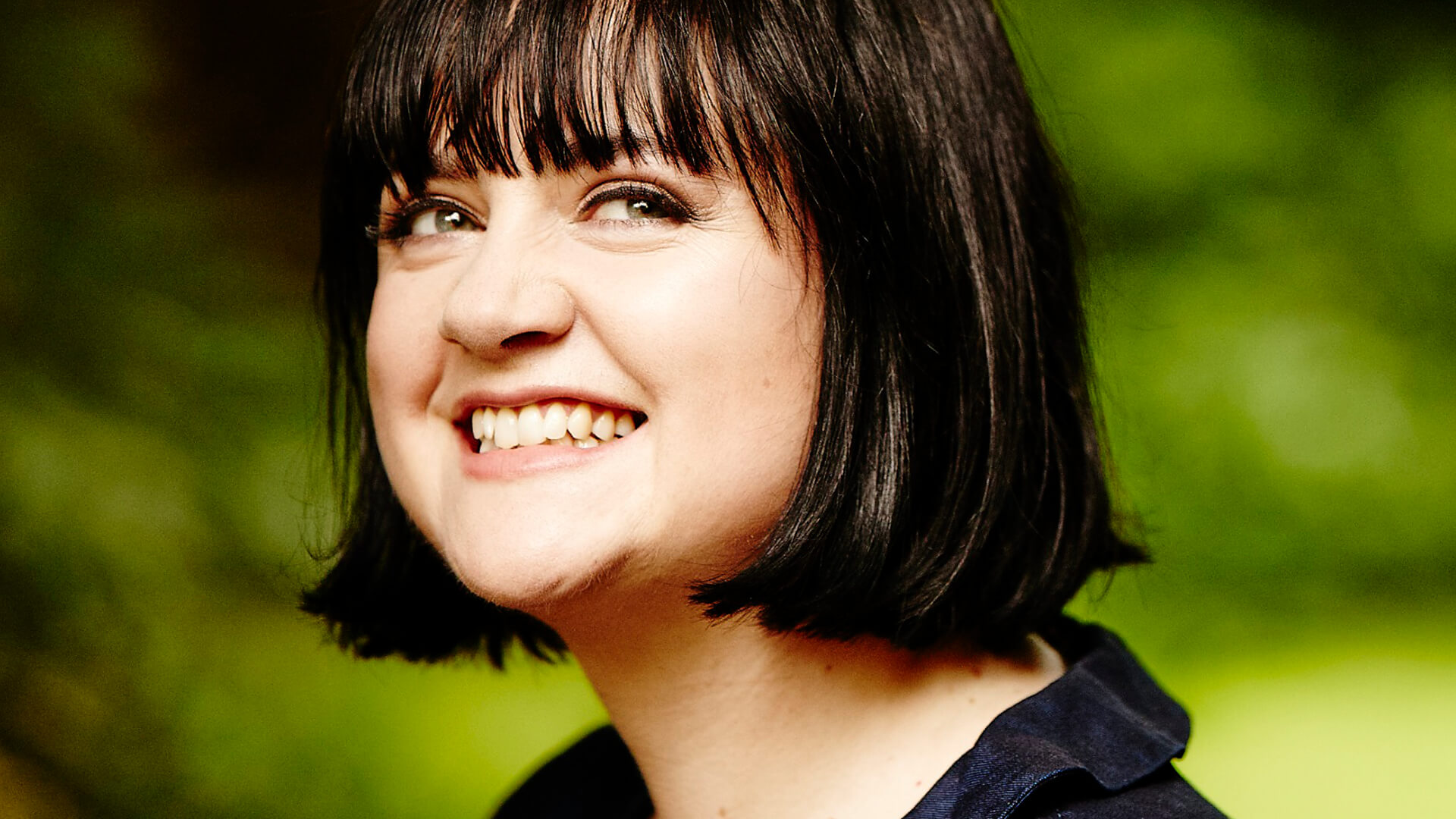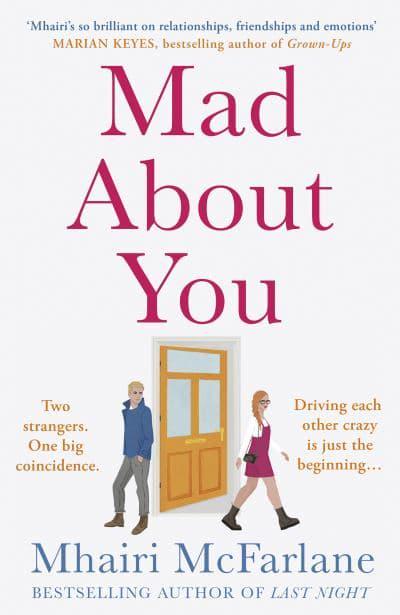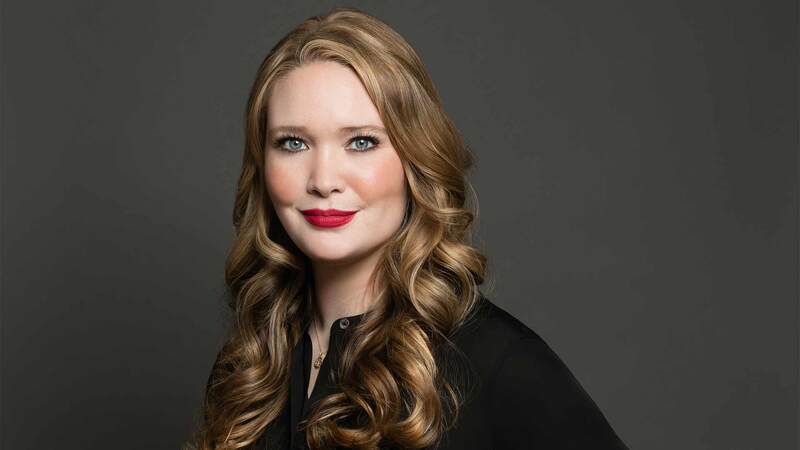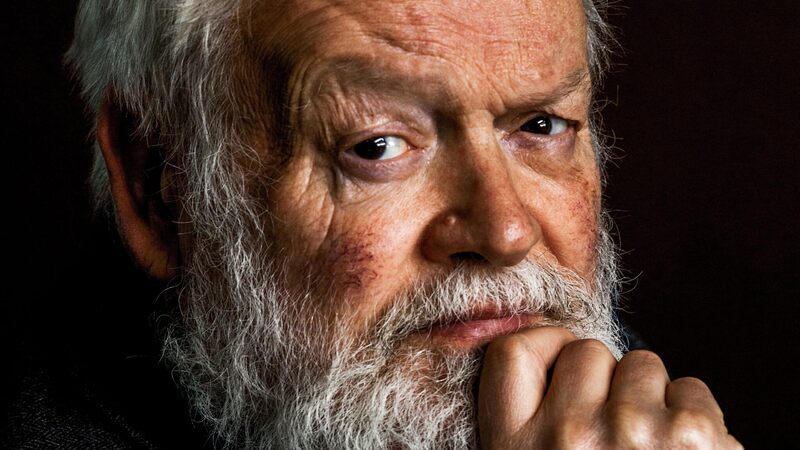You are viewing your 1 free article this month. Login to read more articles.
Mhairi McFarlane discusses her eighth novel, Mad About You
The eighth novel by Mhairi McFarlane sees a wedding photographer crossing paths with a groom on the run.
Mhairi McFarlane was a features writer on the Nottingham Evening Post when she first had an inkling that fiction might be where her talents lay. She had already had a stint as reporter, covering everything from court reporting to death knocks to council meetings, but the colour of writing features suited her better. It wasn’t until she was asked to knock out a piece of advertorial to go along with a women’s supplement, however, that the idea of fiction first came knocking.
“The deputy editor said, ‘It would be really great if you wrote Bridget Jones’ Diary, but as if she lived in Nottingham’. It was the naffest thing I’d ever heard, but when I actually sat down to write it, I found myself having obscene amounts of fun. And then I remember getting a phone call from the girls upstairs in sales, and they actually said, ‘What happens to her next?’ They were treating it like it was a piece of fiction,” says McFarlane. “That was the first time I thought, ‘There might be something here’.”
She was 30, and it was “very much not the ambition to be at the local paper” any more. “There was no-one’s job I wanted, which is very much the lodestar for moving on, for ambition, isn’t it?” she says. “And I thought, ‘What is stretching me?’ I loved romantic comedy—what if I tried to write something like that? What if I actually tried to write long-form fiction?”
When I started making myself laugh, I thought, ‘Oh, you might be onto something here.’
But looking at the bookshelves back then, in the Noughties, McFarlane felt the genre was “very kind of monied, in an inaccessible way”. She adds: “There were an awful lot of bakeries, and everybody seemed to live in West London, and it was very cupcake-y. There was somebody who was dating a guy who worked in the city, with an incredible jawline and a black Amex card .With the best will in the world, nobody I knew was doing anything like that. So it was kind of like, can I keep all the spark and fun and excitement of romantic comedy, but actually make it feel like it’s taking place in a world I recognise?”
McFarlane is speaking to me on Zoom from her home in Nottingham. We are audio only, because she had forgotten that she was planning to dye her hair today, and “has a bloody hair-dye bonnet on”. She explains she was 31 when she quit her job, “like a complete dickhead”. Her feeling was that if she didn’t give writing fiction her all, she would never do it. She continued to earn money through a series of freelance PR gigs, and her boyfriend paid the mortgage for a while. “My plan was a mix of stupidity and arrogance. I thought I would get a deal in a year to 18 months,” she says. “Cue misery and five years of being completely skint. If You Had Me at Hello (HarperCollins) hadn’t been picked up, I would not be a novelist, because I didn’t have it in me to try again.”
It took her a while to get the tone of the novel right, and to realise how important humour was to her writing. You Had Me at Hello is the story of Rachel and Ben, best friends at university who drift apart after leaving. When they meet again, he is married. “I went into a zone in my mind where I was like, because writing a novel is a serious thing, my novel should have a very serious tone,” she says. An editor at Random House put her on the right track, telling her that although she loved the premise, “your heroine is a bitch”. McFarlane “wept in the pub”, realised the editor was right, and rewrote it. “When I started making myself laugh, I thought, ‘Oh, you might be onto something here.’”
You Had Me at Hello was picked up by HarperCollins with a “very modest advance, which was absolutely fair, because there were no particular signs I was going to set the publishing world alight”. But back in 2012, publishers weren’t quite so canny about Kindle pricing, and when the début was part of a 99p Kindle deal, she sold 100,000-odd copies in a month and became “very visible”.
“Then I got a nice big deal to stay at Harper, so it was all good. My family were shocked because they spent five years thinking they were going to have to sit me down and tell me it was never going to happen,” she says.
Reading backlist
Usually, before I interview an author, I need to do a lot of reading, catching up on the backlist I haven’t read, reminding myself of their more recent titles. With McFarlane, I didn’t. Ever since You Had Me at Hello, I have read everything she’s written. Her love stories are about real people, in real places. They are also super romantic, and they genuinely make me snort out loud with laughter, in that way that has you trying to explain to whoever’s watching you, quizzically, exactly what is going on.
Who’s That Girl? (HarperCollins), in which Edie accidentally kisses the groom at a wedding and finds herself shamed on social media and retreating home to Nottingham, is possibly my favourite. But I also adore If I Never Met You (HarperCollins), in which Laurie and Jamie fake an office romance to achieve their own ends. And Don’t You Forget About Me (HarperCollins), which sees Georgina forced to confront the sexual abuse she experienced as a teenager, is also brilliant: it delves into some dark places, but then so do many of McFarlane’s novels—and let’s face it, so does all the best romantic writing, however it might be packaged.
McFarlane’s latest, her eighth novel Mad About You (HarperFiction), opens as wedding photographer Harriet turns down a proposal from her seemingly perfect boyfriend. She ends up in a house-share with Cal—the groom she saw running away from his own wedding. There is a glorious mean-guy-getting-his-comeuppance plotline, as well as sparks galore and lots of laughs, but at its heart, this novel is also exploring the fallout from an emotionally abusive relationship.
“I had never seen anybody talk about how, when you have had one really crap relationship, you do tend to make crap choices while you are getting your head together as well. It’s like the ripple in the pond, it’s what goes wrong next as well. I knew that I wanted to write about coercive control, but I didn’t want to write about it in the present tense because that would be quite grinding within a genre that is fundamentally entertaining. Then it all came together because I thought, ‘What about making a terrible safe choice after the experience, and that also going wrong?’” She laughs. “I’ve got a real knack of selling my books and making them sound like incredibly grim, serious tragedies—the lightweight of course, is that she’s a wedding photographer, and he’s run out of his wedding.”
McFarlane has no intention, however, of leaving the dark side out of her stories going forward. She is not the only writer doing this—from Marian Keyes to Nora Roberts to Jenny Colgan to Mike Gayle, depth and warmth and emotional intelligence runs deep in this genre, despite the way it is sometimes dismissed. “I don’t think I could go back to You Had Me at Hello, where the sum total of the heroine’s problem is, ‘Oh, no, I chose the wrong boyfriend.’ Much as I love that book. I’ve moved into writing about more serious things,” she says. “There is an awful lot of prejudice out there [about romantic fiction but] I think you can kind of have it all. You can have the fun and you can have the romance and the excitement—your big rom-com cake with all the icing—but you can actually also deal with some really serious emotional stuff.”











